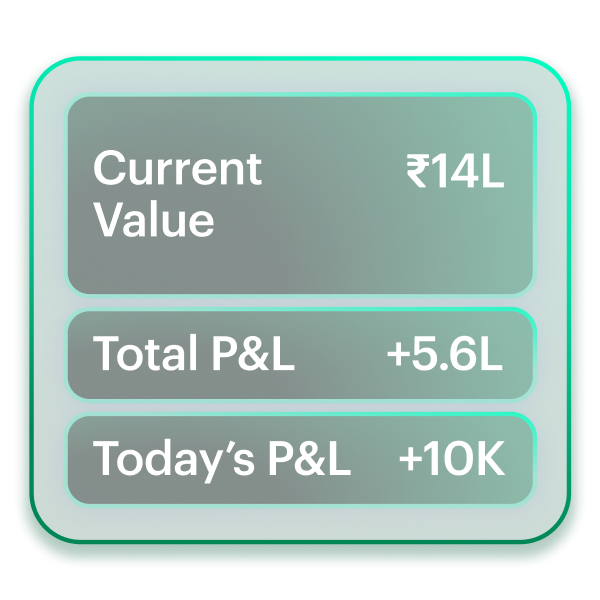Last Updated on Sep 1, 2021 by Manonmayi
If you have been investing in mutual funds, you might already know about equity funds or debt funds – which is a way to classify funds based on where the money is invested (equity vs debt). However, do you know that the same scheme can also come in two variants?
It can be surprising to many investors that every mutual fund scheme actually comes in two variants: direct funds and regular funds. Let’s look at what these two variants are about and how they differ from one another.
This article covers:
- The concept of direct and regular mutual funds
- What are direct mutual funds?
- Features of direct mutual funds
- Benefits of direct mutual funds
- What are regular mutual funds?
- Features of regular mutual funds
- Benefits of regular mutual funds
- Difference between regular and direct mutual fund
Table of Contents
The concept of direct and regular mutual funds
When you want to buy a mutual fund scheme, you have two options. You can either buy the scheme directly from the mutual fund house or the Asset Management Company (AMC), or you can involve intermediaries in your transaction and buy through brokers or distributors. This mode of buying is what separates regular mutual funds from direct mutual funds.
What are direct mutual funds?
Direct mutual funds are those that you buy directly from the mutual fund company or through registered Registrar and Transfer Agents (R & T agents). Since you are conducting a transaction directly with the company, no commission or brokerage is payable to the middleman. Because of this, the total expense ratio of the fund is lower since the cost of commission or brokerage is not included in it.
Due to the absence of middlemen, investing in direct mutual funds lowers the expense ratio and increases returns. Regular mutual funds, on the other hand, are suitable for new investors that lack knowledge about the asset class. Click To TweetFeatures of direct mutual fund scheme
Here are some of the salient features of direct mutual funds:
- You can invest in these funds online or offline
- Besides the AMC, R & T agents and fintech platforms also allow you to invest in direct mutual fund schemes
- The total expense ratio of the fund is lower, which enhances its NAV
- Since the NAV is higher, the fund offers better returns
- Every type of mutual fund scheme is available as a direct scheme
Benefits of direct mutual funds
Direct mutual funds have definitive benefits compared to regular funds. We discuss a few below.
Control over your investments
When you choose the direct mutual fund schemes, you control which schemes to pick and miss. You can also control when to invest in the scheme and when to redeem or switch your investments. You do not have to be influenced by your distributor or broker, who might not always provide the right advice regarding your investments.
Better returns
Direct mutual funds have a low expense ratio which does not eat into the NAV of the fund and allows a maximum part of your investment to be allocated to the market. This feature helps it fetch better returns which, with time, helps your corpus to grow exponentially.
What are regular mutual funds?
Compared to direct schemes, regular mutual funds are sold through mutual fund distributors or agents. These schemes, thus, involve a commission paid to distributors who bridge the gap between the AMC and interested investors. This commission increases the total expense ratio of the fund.
Features of regular mutual funds
Regular mutual fund schemes exhibit the following standard features:
- They are sold by both online and offline brokers and distributors
- The total expense ratio of the scheme is higher than direct funds
- The NAV and the returns are comparatively lower than direct funds
- Every mutual fund scheme offers a regular fund for investment
Benefits of regular mutual funds
Despite the higher expense ratio, regular mutual funds do have their share of merits. Some of these merits are discussed below.
Investment guidance
Mutual fund brokers and distributors are experienced in the mutual fund domain and can help you find the most suitable funds based on your needs. Thus, you can choose regular funds to get the much-needed investment guidance if you begin your investment journey.
Portfolio management
Mutual fund intermediaries can also help you manage your portfolio by advising when to stay invested and redeem your investments for maximum benefits.
Difference between regular and direct mutual fund
When you compare direct and regular mutual fund schemes, you can pinpoint differences that set the schemes apart. So, here’s a look at the difference between regular and direct mutual funds.
| Basis of difference | Regular mutual fund scheme | Direct mutual fund scheme |
| Investing into the fund | Investment is done through brokers or distributors of mutual fund companies | Investment is done directly through the mutual fund company or R & T agents and fintech platforms |
| Total expense ratio | The total expense ratio is high since the brokerage or commission payable to the middleman is included in the expenses of the fund | The total expense ratio is lower since the brokerage expense is not included |
| Net Asset Value | The NAV of the fund is lower because of the higher total expense ratio | The NAV of the fund is higher because of the lower total expense ratio |
| Returns | Returns earned are lower | Returns earned are relatively higher |
| Suitability | Suitable for new investors who need guidance on mutual fund investments | Suitable for investors who want to lower the expense ratio and can manage their investments themselves |
The bottom line
Direct funds give you an advantage in terms of their returns and regular variants offer investment guidance. Ergo, if you are a new investor and are not familiar with this asset class, you can choose to invest in regular mutual funds. Else, you can go for direct funds and enjoy maximum growth on your investments.
- Money Market Funds in India – Meaning, Features & How They Work - Apr 22, 2025
- Top Fund of Funds (FOF) in India – Full Form, Types & More - Mar 28, 2025
- Bond Funds – Meaning, Types, Risks, and Benefits - Mar 27, 2025




